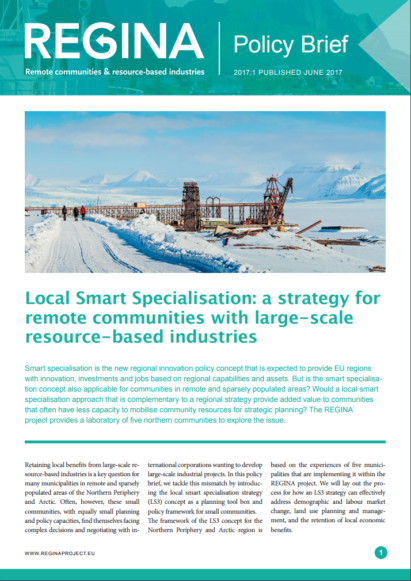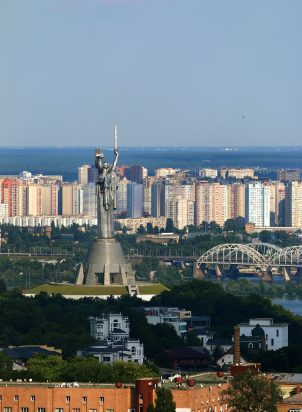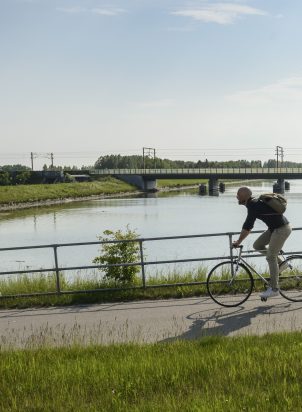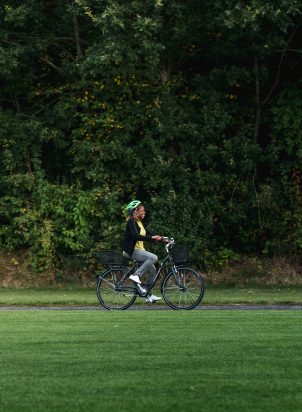Smart specialisation is the new regional innovation policy concept that is expected to provide EU regions with innovation, investments and jobs based on regional capabilities and assets. But is the smart specialisation concept also applicable for communities in remote and sparsely populated areas? Would a local smart specialisation approach that is complementary to a regional strategy provide added value to communities that often have less capacity to mobilise community resources for strategic planning? The REGINA project provides a laboratory of five northern communities to explore the issue.
Retaining local benefits from large-scale resource-based industries is a key question for many municipalities in remote and sparsely populated areas of the Northern Periphery and Arctic. Often, however, these small communities, with equally small planning and policy capacities, find themselves facing complex decisions and negotiating with international corporations wanting to develop large-scale industrial projects.
In this policy brief, we tackle this mismatch by introducing the local smart specialisation strategy (LS3) concept as a planning toolbox and policy framework for small communities. The framework of the LS3 concept for the Northern Periphery and Arctic region is based on the experiences of five municipalities that are implementing it within the REGINA project. We will lay out the process for how an LS3 strategy can effectively address demographic and labour market change, land use planning and management, and the retention of local economic benefits.








